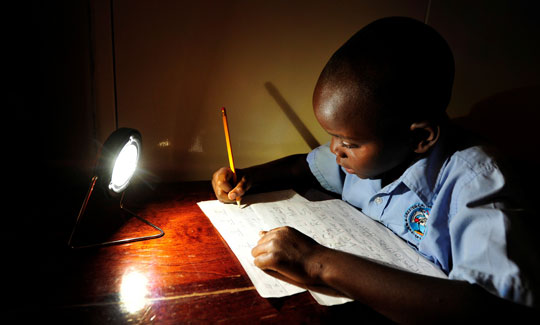The G7 have promised to phase out fossil fuel emissions by the end of the century. Though a long-term target, it’s the first time a proper date has been set for a decarbonised economy for this group of industrialised nations. It will affect the tone of the negotiations at the UN climate talks in Paris in December.
The announcement closely coincides with a big report from Kofi Annan’s Africa Progress Panel: Power, People, Planet: Seizing Africa’s Energy and Climate Opportunities (pdf). The report connects Africa’s energy and climate priorities to the ‘global deal’ (and therefore the upcoming Paris talks), as well as highlighting some of the distinctive opportunities and challenges faced by African countries. ‘Leapfrogging’ into new technologies without the need to go through a high-carbon phase, and tackling the inequality and inefficiencies of current centralised energy delivery, are two important areas. This goes beyond just applying new technology, to thinking about the social, political and knowledge questions underpinning the energy system.
A big question is how to secure low-carbon development in ways that benefit poor people. For the energy sector, this means thinking differently about how to generate, supply and maintain energy to poor people as well as the well-off – looking outside the models long established in the industrialised North. Providing cheap, plentiful low-carbon energy access in Africa will not be easy, though there is no shortage of ideas and ambition for how to work towards it. Knowledge is power.
It goes without saying that these ideas must be led by African priorities and approaches, though the continent is inextricably connected to its trading partners overseas, from China to Brazil, India and indeed the members of the G7. Strong vested interests and well-established pipelines will be hard to shift.
This in turn means addressing gaps in knowledge and connecting ideas within the African continent itself. The STEPS Centre is joining in this effort by helping to convene a 3-day workshop on Low Carbon Development in Africa, which starts today in Nairobi. The workshop will share ideas and cases from around Africa, and work towards a research agenda to meet the different and varied needs of African countries.
The event will also launch the STEPS Africa Sustainability Hub, which will address these questions and others among a group of partners (the African Centre for Technology Studies, Stockholm Environment Institute Africa and the African Technology Policy Studies Network).
Follow the workshop from 10-12 June at #LowCarbonAfrica on Twitter, or visit the workshop page for updates.
Image: Child studying – Zambia by Patrick Bentley
